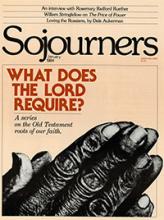Although black people have participated in the U.S. military since the 18th century and continue to do so, numerous black Americans through the years have raised their voices to condemn U.S. militarism as contrary to the goal of justice. They recognized that the United States' wars and preparations for war have had a profound impact on the lives and liberation struggles of people of color, both in this country and around the world. Those critical voices are now growing in number among groups of black Christians, as well as among secular activists.
In the black community, questions of peace and resistance to militarism have almost always centered on the injustices in American society. Thomas Van Rensselaer, a black abolitionist, wrote in 1841, "Let it be understood from one end of the country to another that we will never again take up arms in defence of this country unless all of the institutions are thrown open to us on equal terms." More than 100 years later, the Student Nonviolent Coordinating Committee (SNCC) raised a similar point in its January, 1966 statement protesting the Vietnam War: "We support the men ... who are unwilling to respond to the military draft which would compel them to contribute their lives to U.S. aggression in the name of the 'freedom' we find so false in this country."
Other black people, including Frederick Douglass, A. Philip Randolph, Paul Robeson, W.E.B. Du Bois, Malcolm X, and Martin Luther King, Jr., have denounced U.S. military and foreign policies and exposed the links between those policies and racism, economic exploitation, and other forms of injustice. This legacy of protest now finds expression in groups such as the Black Veterans for Social Justice; the National Network of Black Americans for Peace, Freedom, and Justice; Blacks Against Nukes; and the New Coalition of Conscience, among others.
Read the Full Article

